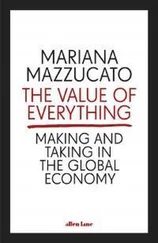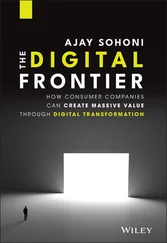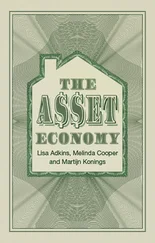Let me start with wealth. In the first three months of 2018, Google 1had a total income of 31.1 billion US dollars (a 26 per cent increase compared to the first three months of 2017), 85 per cent of which, or $26.6 billion, was brought in by advertising. In the same period Google’s net income, or profit, was $9.4 billion (Alphabet Inc. 2018b). In the second three months of 2018, the company’s total income was $32.7 billion, advertising brought in $28 billion (86 per cent), and net income was $3.1 billion (or $8.2 billion excluding fines) (Alphabet Inc. 2018a). A surplus or profit of $12.5 billion in six months is wealth.
Google’s profit has always been dependent on revenue from advertising that is driven from its search engine. Formed in 1998, the company began as a website with one feature, its search engine. The first ever Google webpage was just the name Google and a box in which a search query could be entered. Its distinctive search capabilities attracted the attention of investors, who funded its losses in the early years. In 2000 Google lost $14.1 million, double its previous year’s losses, but was soon to launch an advertising program called ‘Adwords’. In 2001 the company showed a profit of $7 million, its first ever profit, rising to $100 million the following year, and then steadily upward to a yearly profit $19.5 billion in 2016, $12.6 billion in 2017, and $12.5 billion in the first half of 2018 (Auletta 2011; Levy 2011; Alphabet Inc. 2017).
Such figures sometimes lead to the judgement that ‘Google is an advertising company’, but while the source of revenue and profit is undeniable, advertising hardly defines Google’s economic practice. It is also not alone as a search engine – before it were Alta Vista, Ask Jeeves and others, alongside it are Baidu, Bing, DuckDuckGo, Mojeek and others. Google is also not alone in monetising a service through advertising – Facebook, many computer games, web portals and other sites also take this route. While there are other search engines and other online advertisers, in examining a specific digital economic practice it helps to focus on just one, and it makes sense to start with Google given its position as a pioneer of online advertising and one of the largest profit-generators in the digital economy.
Following an examination of Google’s economic practice, this chapter will pursue two directions. First, Google’s economic practice will be abstracted to try to identify its key elements. Particular attention will be paid to its digital elements – those which might signify a specifically digital economic practice – and to how this practice might have a possible wider applicability. Second, I will explore whether Google’s practice can be applied to or found in other search engine companies.
Googling as an Economic Practice
To examine a specific practice, it needs to be acknowledged that practices come from points of view. A practice is always with or from someone or something. Points of view come with intentions and meanings, with authors, actants and actors aiming to do certain things, even if sometimes they achieve only related or different things. Points of view are necessary entanglements with other points of view, not all of which are visible to each other. The individual who searches does not necessarily see the algorithm forming the answer, nor does the algorithm necessarily account for the computers it requires, which themselves alter environments through their hunger for electricity, rare metals and so on. The points of view can never all be collated; the ‘god’s eye view’ misleads with a false promise of totality (Haraway 1991: 189–98). Yet, points of view can anchor an analysis of a web of intersections though a focus on a certain perspective that brings into view economically significant practices.
Practices are materialised in repeated actions, ideas and relations, each practice making a particular context material. When a practice is performed, one materiality is realised leaving behind other possibilities. While the previous discussion established the importance of habits amid differing activities for understanding practices generally, moving to a specific set of practices (here those of searching) requires taking into account points of view and understanding the materiality and the moment of activities. When a practice is performed, for example when a search is made, a reality is cut – in Barad’s sense – out of the mess of entanglements that intersect in each specific moment and place. And in each cut where a materiality is made there will be multiple points of view, different ways of performing in the complexity of an overall practice (Barad 2007: 148–70). One matter realised once is still matter, but it only transforms into a socially, culturally, politically or economically significant matter when the cut is repeated across a range of points of view and the same matter is realised. To understand Google’s economic practices, then, the points of view from which such repeated practices create and rely on materialities need to be followed. Three such points of view will be examined: those of the searcher or user; of the advertiser; and of Google itself, particularly in relation to its algorithms and datasets and the demands on these created by its commitment to a for-profit corporate logic.
A caveat to this analysis is that Google search has changed and continues to change, becoming more complex over its development. This case study will simplify somewhat by focusing on Google relatively early in its advertising days, at the point broadly speaking when its two key ad programs – Adwords and Adsense – and personalisation through data were established.
In 2016 around 2 trillion searches were conducted using Google’s search engine. To explore user practices, I will follow one user finding an answer (Sullivan 2016). Imagine you are writing a book about the digital economy based on following economic practices in specific digital contexts, rather like this book. As part of this project, you wish to outline the various practices related to searching for information using Google, and, as you write that, you realise it might be helpful to locate those practices in a broader context, perhaps by establishing how many Google searches are made. Practices then follow.
First, your practices have a material context. This will include working on a desktop computer from home, rather than in the office your employer provides, or on a phone while moving around, or on a tablet while commuting to work on a train. There are a range of taken-for-granted practices here: using a mouse and the Microsoft operating system, using alt-tab to switch to an already open browser (Firefox) and knowing that typing a string of words – ‘Google search enquiries 2017 total number’ – into what looks like the address box of the browser will invoke the Google search engine. Underpinning even these unthought and semi-automatic practices are a range of things like electricity, broadband access, light and so on, which create a material context in which our user can sit and quickly bash out an enquiry, hitting return to initiate the search.
Taking most of this material context for granted, our user is now looking at a computer screen on which a window organised by the Firefox browser has opened up. The window is very familiar. At the top are buttons, an address window, and various customisations (Zotero for referencing, for example), which control the actions that can be taken in the browser. Just below this ribbon of buttons is the Google logo, the search box in which the words used in the search reappear, reminding the user what the initial action was. Below that is a list of responses to the query, with a blank space to the side of these answers, though the user knows that sometimes advertisements or summaries will appear there. The list of entries is each an address (a URL) linking to another site on the World Wide Web, with the first two to three lines of each site being shown. From this our user realises that their search words were not the best, as the second entry is for the UK’s Her Majesty’s Land Registry, which records land ownership in the UK and has nothing to do with the number of Google search queries. Scrolling over the entry box for a new search brings up a suggestion – ‘how many Google searches per day 2017’ – which our user clicks on to generate a second set of results. The result that was first on the first search is now second, but our user clicks on that result as it has now shown up twice, and in their experience (that is, in the practices they have developed to search for information using Google), this is a reasonable indication that the answer they want may be found there. Disappointingly, the article linked to is from 2016 but it is from a search engine analysis site and seems reasonably sourced, so our user lifts the 2 trillion a year figure and adds it to their text.
Читать дальше












